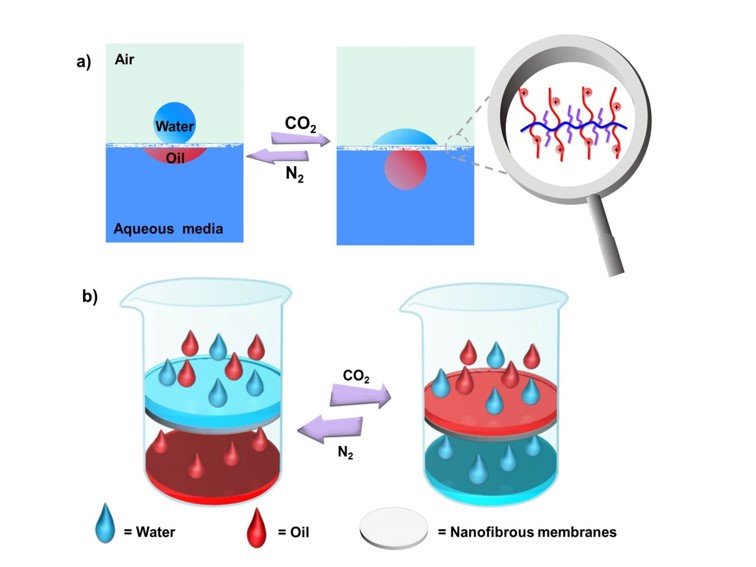Intelligent surfaces are capable of changing their wettability derived from changes in the materials environment, and they have significant applications in the field of nanoreactors, reversible capture of protein or cell, controlled drug delivery and oil/water separation. In this regard, the wettability of responsive polymers-based surfaces can be effectively adjusted under different stimuli.
Recently, Prof. Jinying Yuan, Prof. Yen Wei, Prof. Lin Feng et.al at Tsinghua University have made important progress in gas-sensitive membranes that demonstrate switchable oil/water wettability. The researchers developed CO2 stimuli-responsive nanostructured membranes based on the combination of polymerization reactions and the technique of electrospinning. After purging CO2, the surfaces were endowed with a significant transition from hydrophobicity to hydrophilicity. The membranes can adjust their oil/water wettability between hydrophobicity/oleophilicity and hydrophilicity/oleophobicity under an alternating CO2/N2 stimulation. The surface morphology of the prepared nanofibers can also be well controlled through CO2 bubbling quantity and stimulation time which give rise to various wettability changes. Moreover, using CO2 as “green” driving force, the membranes hold great promise in terms of dual oil/water on–off switches, an attractive property for selective oil/water separation. The research work was published in Angew. Chem. Int. Ed.( Che, H., Huo, M., Peng, L., Fang T., Liu, N., Feng, L., Wei, Y. and Yuan, J., Angew. Chem. Int. Ed., 2015, 54, 8934-8938). The first author is Mr. Hailong Che, who received his master degree in July, 2015.
